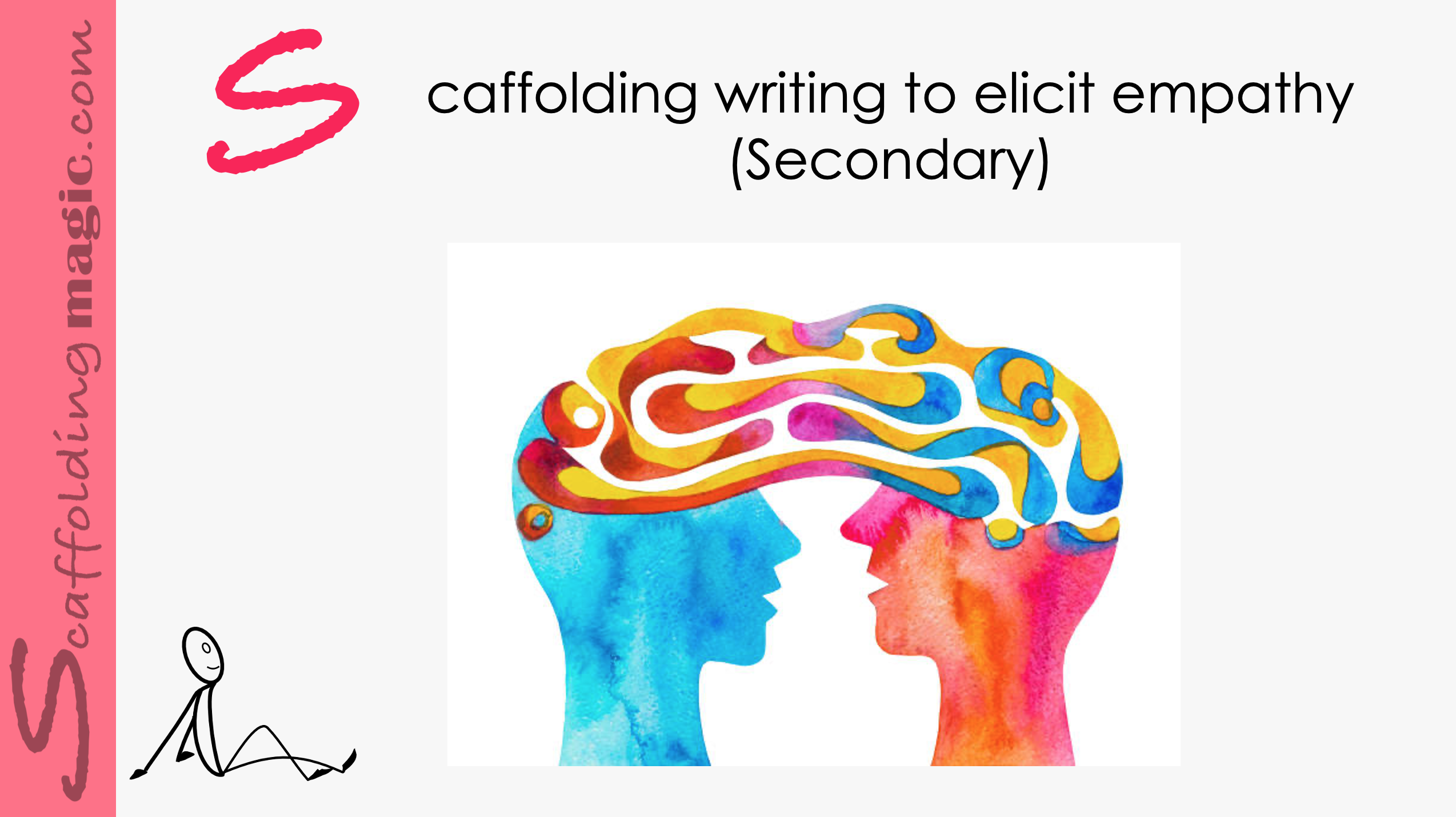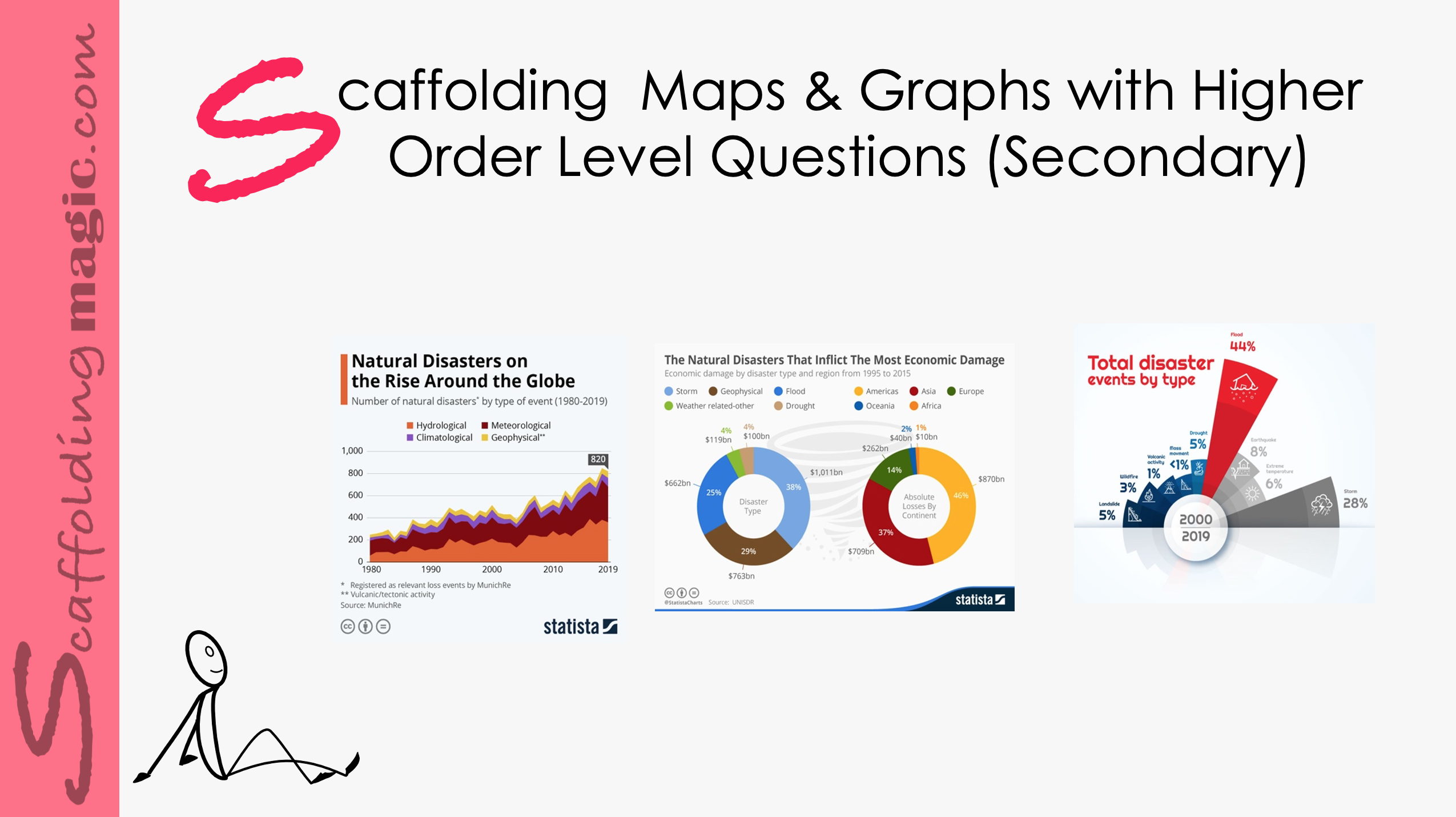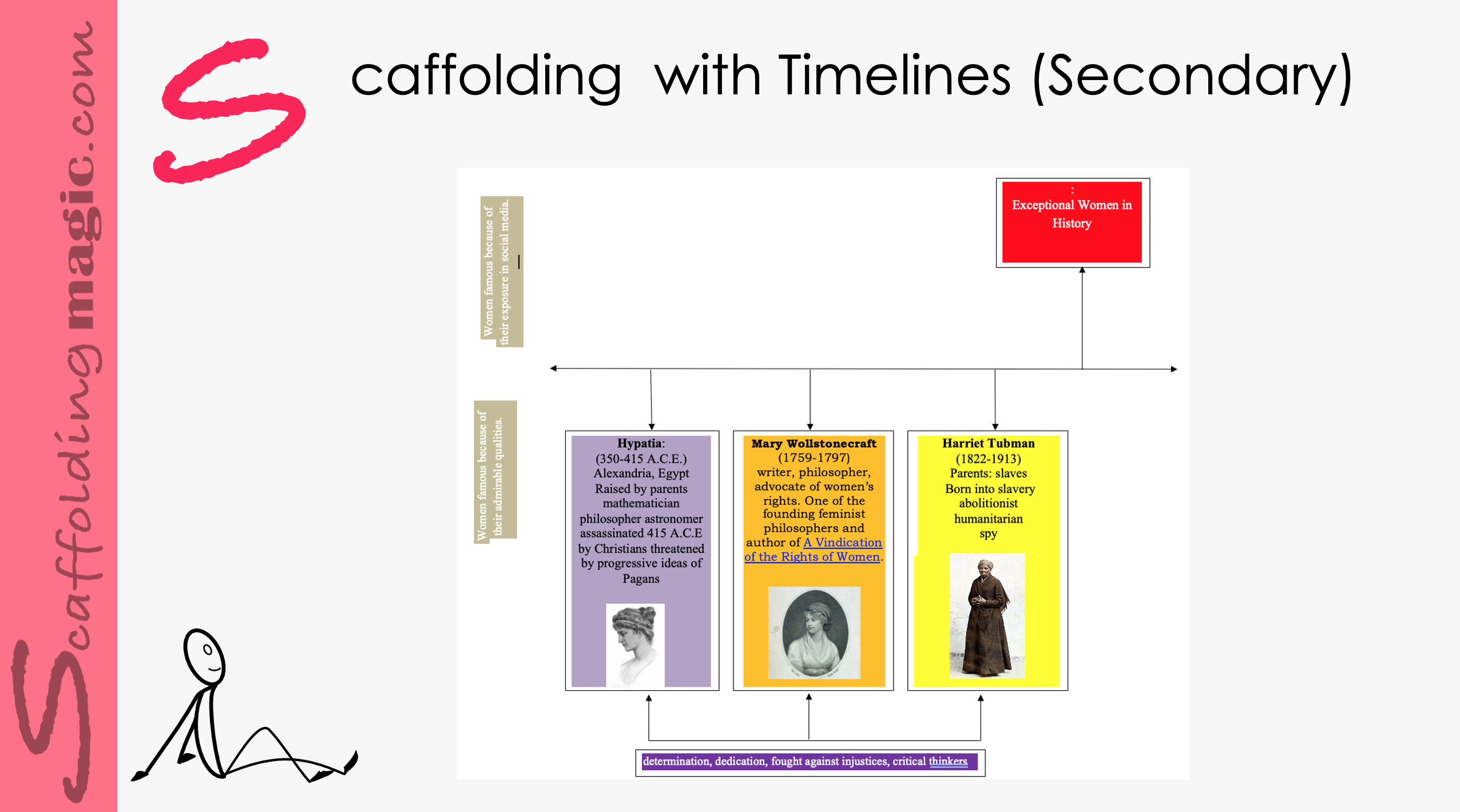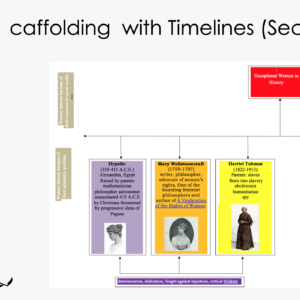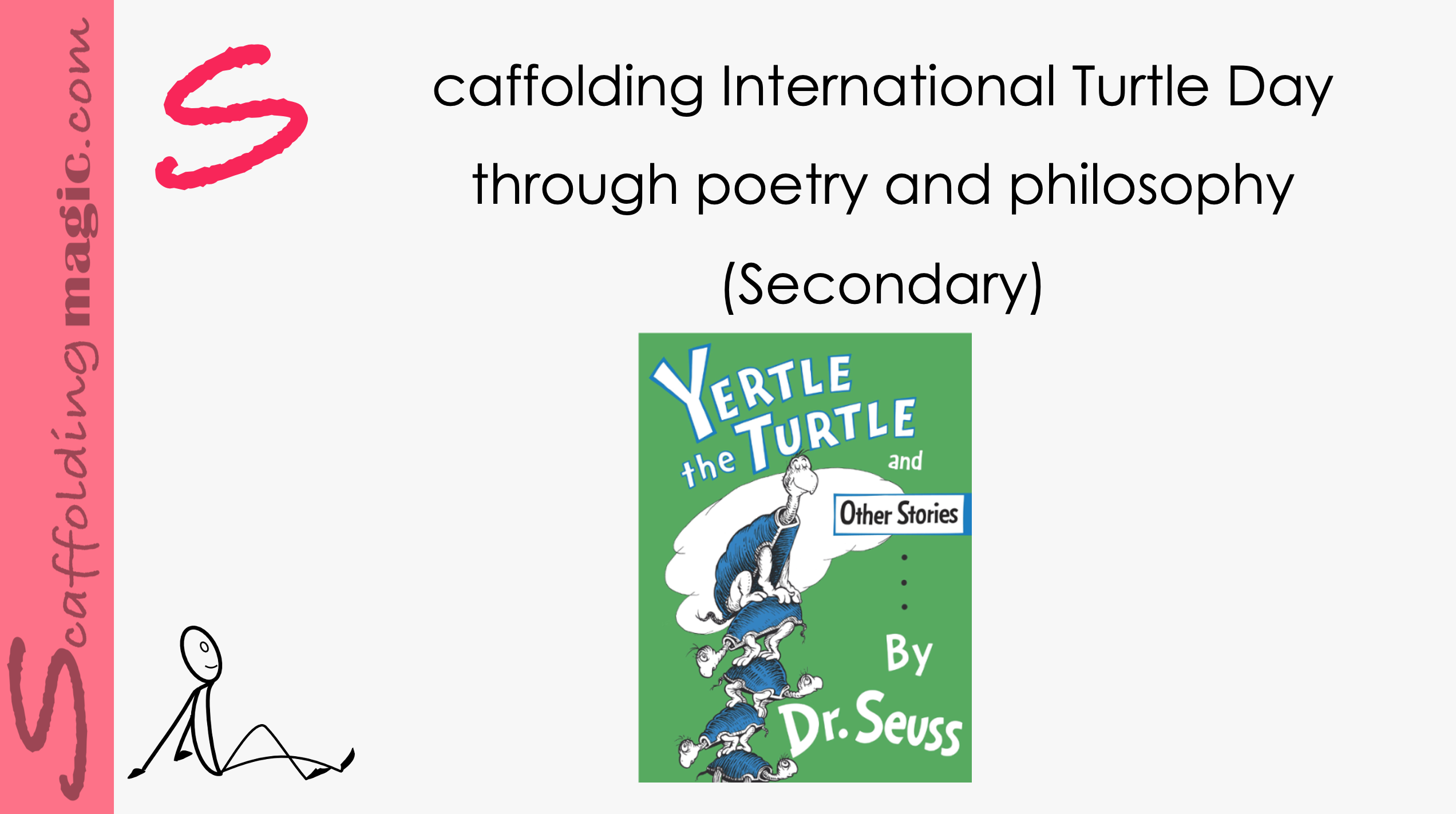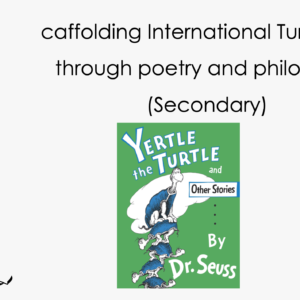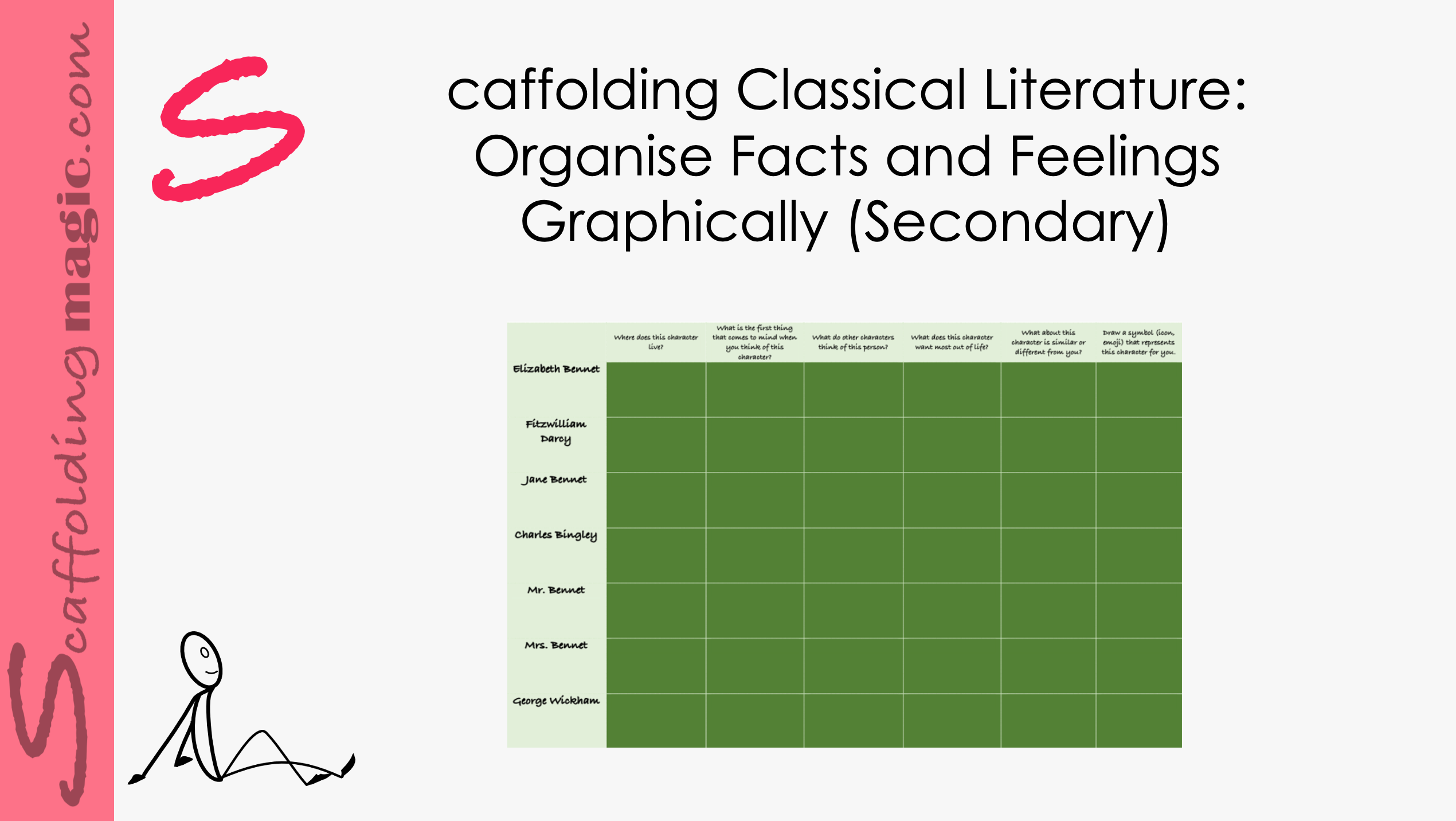Writing is one of the four cornerstone skills of every inclusive educational curriculum. It helps us form our thoughts into coherent verses and communicate over distance and time. It is a skill usually approached as a way of appeasing bands for standardised exams, but, in fact, is the perfect tool to foster the development and expression of empathy.
Scaffolding Writing to Elicit Empathy (Secondary)
$5.00
Writing is one of the four cornerstone skills of every inclusive educational curriculum. It helps us form our thoughts into coherent verses and communicate over distance and time. It is a skill usually approached as a way of appeasing bands for standardised exams, but, in fact, is the perfect tool to foster the development and expression of empathy.
Related products
-
Secondary ScaffoldsQuick View
Scaffolding Maps & Graphs with Higher-Order Level Questions (Secondary)
$20.00 Add to cartRated 0 out of 5 - Quick View
- a philosopher…he had a moral message in all of his stories
- political activist…not all of his books were written with a political message
- a philosopher…he had a moral message in all of his stories
- political activist…not all of his books were written with a political message
-
Secondary ScaffoldsQuick View
Scaffolding International Turtle Day through Poetry and Philosophy (Secondary)
$5.00 Add to cartRated 0 out of 5 -
Secondary ScaffoldsQuick View
Scaffolding Activity for Classic Literature 4: Organise Facts and Feelings Graphically
$5.00 Add to cartRated 0 out of 5
Scaffolding Maps & Graphs with Higher-Order Level Questions (Secondary)
Higher-order level questions – those that elicit deeper thinking – help students to stretch their thinking and engage their curiosity, their reasoning ability, their creativity, and independence. These questions encourage students to open their minds, they offer opportunities to produce original thinking. A well-structured question sparks perspectives that might not have at first occurred to us; they encourage us to look at the issue from different perspectives. Higher-order level questions inspire fresh and sometimes even startling insights and ideas, they open roads for wider perspectives of the issue, and enable teachers and students to work together in constructing understanding. If we use effective questioning skills in the educational environment, we help our students to be more effective thinkers now and in the future.*
Higher-order level questions – those that elicit deeper thinking – help students to stretch their thinking and engage their curiosity, their reasoning ability, their creativity, and independence. These questions encourage students to open their minds, they offer opportunities to produce original thinking. A well-structured question sparks perspectives that might not have at first occurred to us; they encourage us to look at the issue from different perspectives. Higher-order level questions inspire fresh and sometimes even startling insights and ideas, they open roads for wider perspectives of the issue, and enable teachers and students to work together in constructing understanding. If we use effective questioning skills in the educational environment, we help our students to be more effective thinkers now and in the future.*
Scaffolding with Timelines (Secondary)
We can create timelines – or use ones that are offered in the Student Books – as effective tools our students can use to categorise new knowledge through different learning styles, thus encouraging the information to pass from short-term to long-term memory. **
Timelines are used when there is a definitive focus on the concept being studied. Using them, we create a particular question our students need to answer or some situation or event that they need to understand; we can also, of course, use a queries from their Student Books. Cooperative learning is recommended because, if a challenge arises in which one student is weak on linguistics while another is weak on visual clues, they can work together to transfer their respective weakness into strengths. Previously unsuccessful students can then become successful in making sense of, and will acquire a feeling of control over, the subject matter.
We can create timelines – or use ones that are offered in the Student Books – as effective tools our students can use to categorise new knowledge through different learning styles, thus encouraging the information to pass from short-term to long-term memory. **
Timelines are used when there is a definitive focus on the concept being studied. Using them, we create a particular question our students need to answer or some situation or event that they need to understand; we can also, of course, use a queries from their Student Books. Cooperative learning is recommended because, if a challenge arises in which one student is weak on linguistics while another is weak on visual clues, they can work together to transfer their respective weakness into strengths. Previously unsuccessful students can then become successful in making sense of, and will acquire a feeling of control over, the subject matter.
Scaffolding International Turtle Day through Poetry and Philosophy (Secondary)
A children’s book about turtles is philosophical? Oh yes it is! Theodor Seuss Geisel (Dr. Seuss), was not just a writer of children`s books, but a profound philosopher, a poet, a political advocate (sometimes controversial), and a promoter of critical thinking on all levels.
A children’s book about turtles is philosophical? Oh yes it is! Theodor Seuss Geisel (Dr. Seuss), was not just a writer of children`s books, but a profound philosopher, a poet, a political advocate (sometimes controversial), and a promoter of critical thinking on all levels.
Scaffolding Activity for Classic Literature 4: Organise Facts and Feelings Graphically
Here is a scaffold that will help your students keep track of the many characters in the story. Aside from the facts and family trees which can help enormously in following the plot, the graph encourages the students to pay attention to personalities and actions so they can make connections to them and people in their own lives – a key in engaging our students.
Here is a scaffold that will help your students keep track of the many characters in the story. Aside from the facts and family trees which can help enormously in following the plot, the graph encourages the students to pay attention to personalities and actions so they can make connections to them and people in their own lives – a key in engaging our students.

